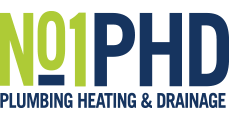
Legionnaire Risk Assessments
All building owners or operators have a duty to ensure that there is no risk of legionnaire’s disease from their premises. And the duty doesn’t just involve public buildings, care homes, or large blocks of flats. Residential landlords are also responsible for making sure that Legionnaires’ disease is not caused by droplets from their building. The risk has to be first assessed, then reduced and maintained at a low level, by a control maintenance regime.
What Is Legionnaires Disease?
It’s a very severe form of pneumonia, in which people’s lungs get infected when they inhale droplets of water that contain legionella bacteria. It can be very serious, even fatal, if the people who are infected have poor health. Any system that causes droplets of water to enter the air that people breathe in, could cause Legionnaires. That even applies to the spa tubs in gyms.
However, for facilities managers, landlords and others, the real concern is exhaust from air conditioning and ventilation systems. The disease frequently occurs in offices, hospitals or hotels, when the legionella bacteria find their way into the water system. Sources of infection can also include showers, toilets and taps, cooling towers, hot water tanks and other water system components.
What tends to happen, is that a cluster of cases occur within, or around a building. The building is then investigated, to see if it is the source of the outbreak.
How To Assess The Risk In Your Water Systems
The bacteria likes a temperature of 20-45°C. Temperatures over 60°C kill them.
The first step, as the Health and Safety Executive explains, is to carry out a complete risk assessment of your water systems. At No1PHD, we have experts on hand to assess risks promptly, accurately identify possible sources of infection, and put a remediation plan in place. Risks that might be identified could include:
- Hot water cylinders that don’t reach 60°C
- Systems that distribute water at under 50°C
- Cold water that is reaching temperatures over 20°C
- Stagnant water in shower heads
Reducing Risks In Water System Design
You’ll have to identify what are called “sentinel” outlets. These are the ones that are the closest and the furthest from each tank or cylinder. Each month, their water temperature must be checked. Other regular checks are needed on storage cylinder and cold water tank temperatures.
Legionella bacteria love stagnant water. So showerheads and taps that aren’t used very often need special flushing and descaling. In general, we recommend keeping pipe runs as short as possible
No1PHD’s Legionnaire Risk Assessment
We will trace through your water system, test all temperatures and note what materials are used in the system. We’ll also document where stagnant water is a risk. Where we identify risks, we’ll recommend controls for them. We’ll then issue a Risk Assessment certificate – you must control any risks that have been identified. If you need assistance with this, we have maintenance staff on hand, who can carry out the works.
We’ll also recommend the monitoring regime you need, and how often certain tests must be carried out.
Continued Risk Reduction
A planned schedule of risk reduction maintenance works will ensure that the water systems remain free of legionella. This type of timetabled maintenance might include:
- Descaling and disinfecting taps and showerheads
- Testing and servicing mixing valves
- Monitoring temperatures regularly
- Inspecting and disinfecting cold water tanksI
- Descaling calorifiers
- Repeating legionella risk assessments
Any possibility of legionnaire’s disease is a serious issue. Call us at No1PHD on 08006906777 for a full, impartial and professional risk assessment. We’ll check that your system is not putting anyone at risk. Speak with the experts for all your commercial plumbing and heating and drainage services, No1PHD.



